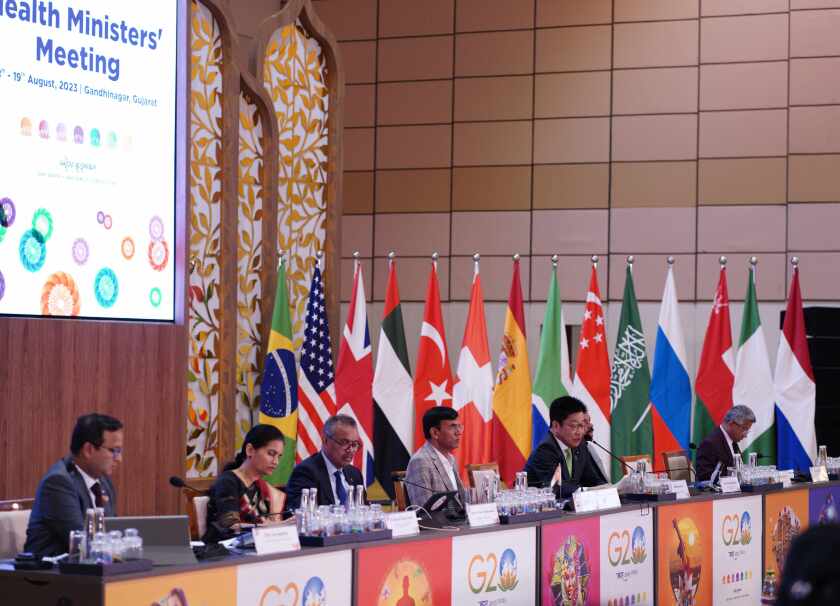G20 health ministers have hailed the importance of tech transfer and knowledge sharing to prevent future pandemics, but only on “voluntary and mutually agreed terms”.
An outcome statement, published after a two-day meeting of health ministers in Gujarat on Saturday, August 18, highlighted the need to improve access to vaccines, diagnostics, and therapies in developing countries.
Negotiations to achieve that aim are ongoing at the World Health Organization (WHO), which is preparing the text of a new pandemic preparedness treaty.
But developed countries have so far resisted lower-income nations’ demands to make rights owners share their intellectual property.
The shadow of that debate is visible in the wording of the G20 statement, says Ellen ‘t Hoen, director at Medicines Law & Policy in Amsterdam.
“This statement does not detract from the rights countries have to use compulsory patent licensing. But the G20 does seem to want to pre-empt the outcome of the pandemic treaty negotiations at the WHO by stressing voluntary measures,” she said.
As Managing IP has previously reported, low-to-middle income countries that want harder commitments on knowledge sharing face an uphill battle at the WHO.
WHO negotiators met in Geneva last month for the latest round of talks on the pandemic treaty, which has several chapters that could affect the global IP system.
The latest text, prepared by the bureau of the WHO’s Intergovernmental Negotiating Body, mostly promotes the voluntary sharing of know-how rather than any hard obligations.
India and South Africa, G20 members that have argued for tech transfer obligations on IP owners in other forums, signed the outcome statement over the weekend.
‘T Hoen said WHO member states should take a “more courageous approach” than shown either by the G20 or in the bureau draft of the pandemic treaty so far.
“‘Voluntary’ is how the world left it the last time around. That did not work out for most countries,” she said.
The outcome statement was agreed unanimously by G20 states, except Russia and China, which objected to a paragraph calling on Russian forces to withdraw from Ukraine.











